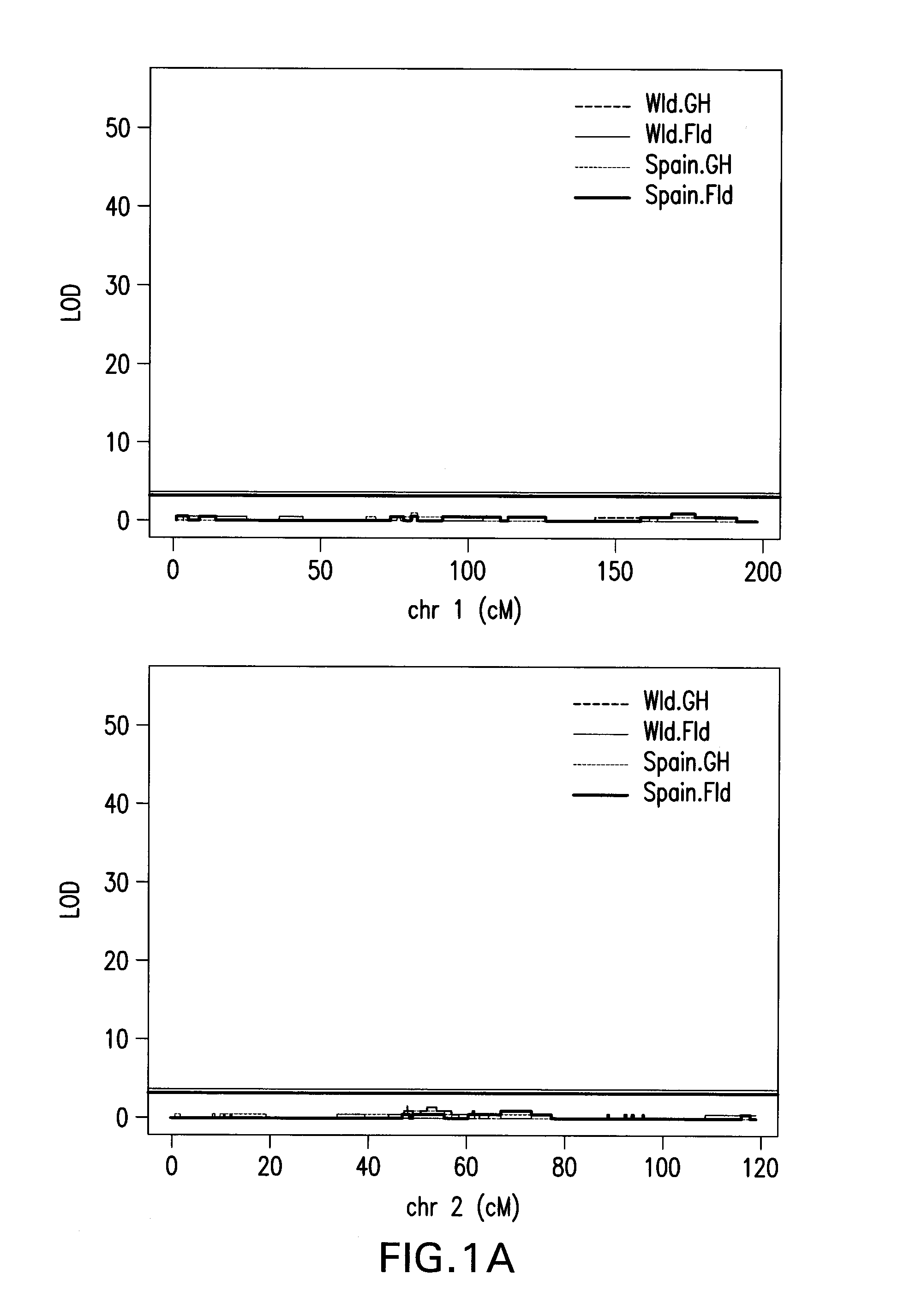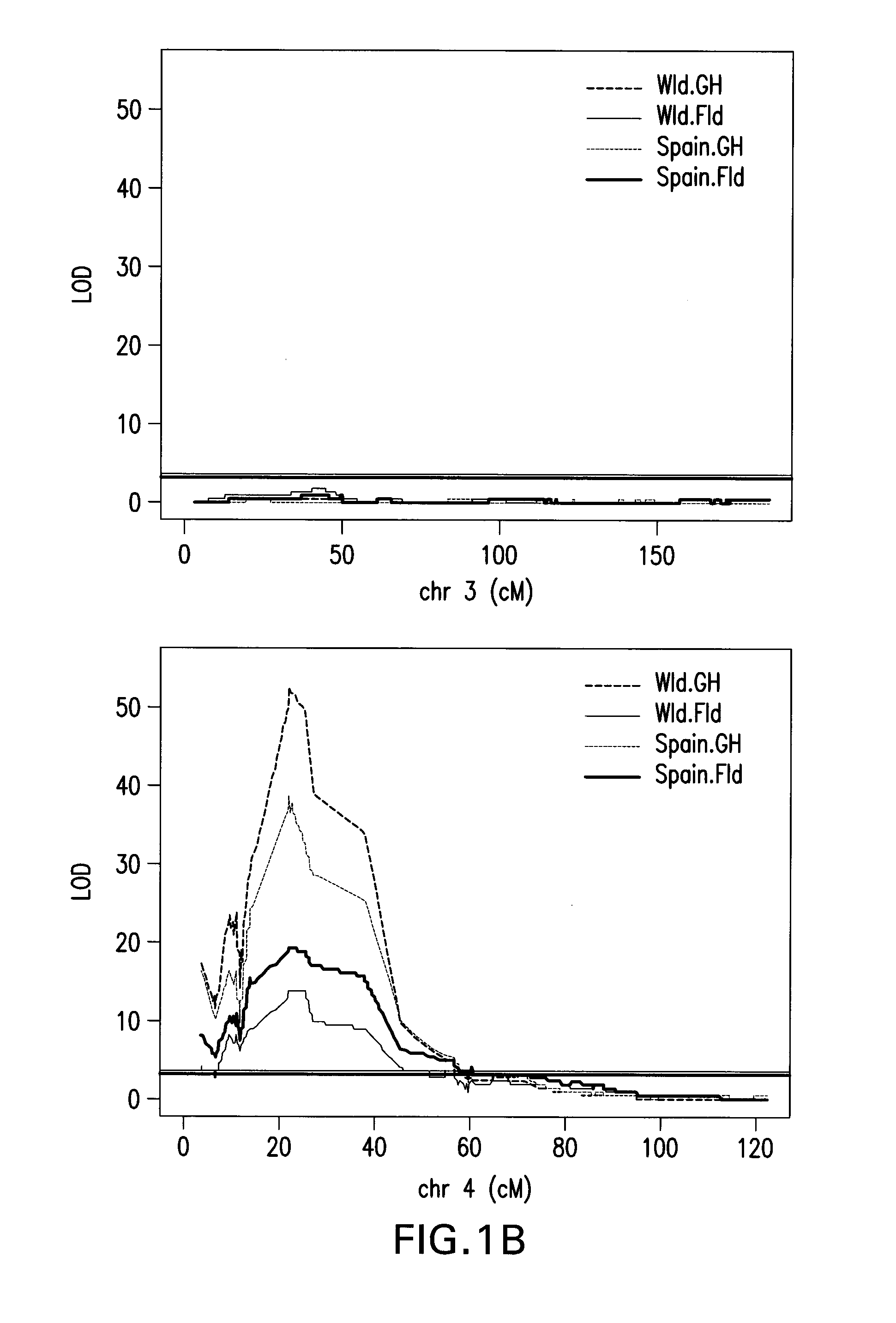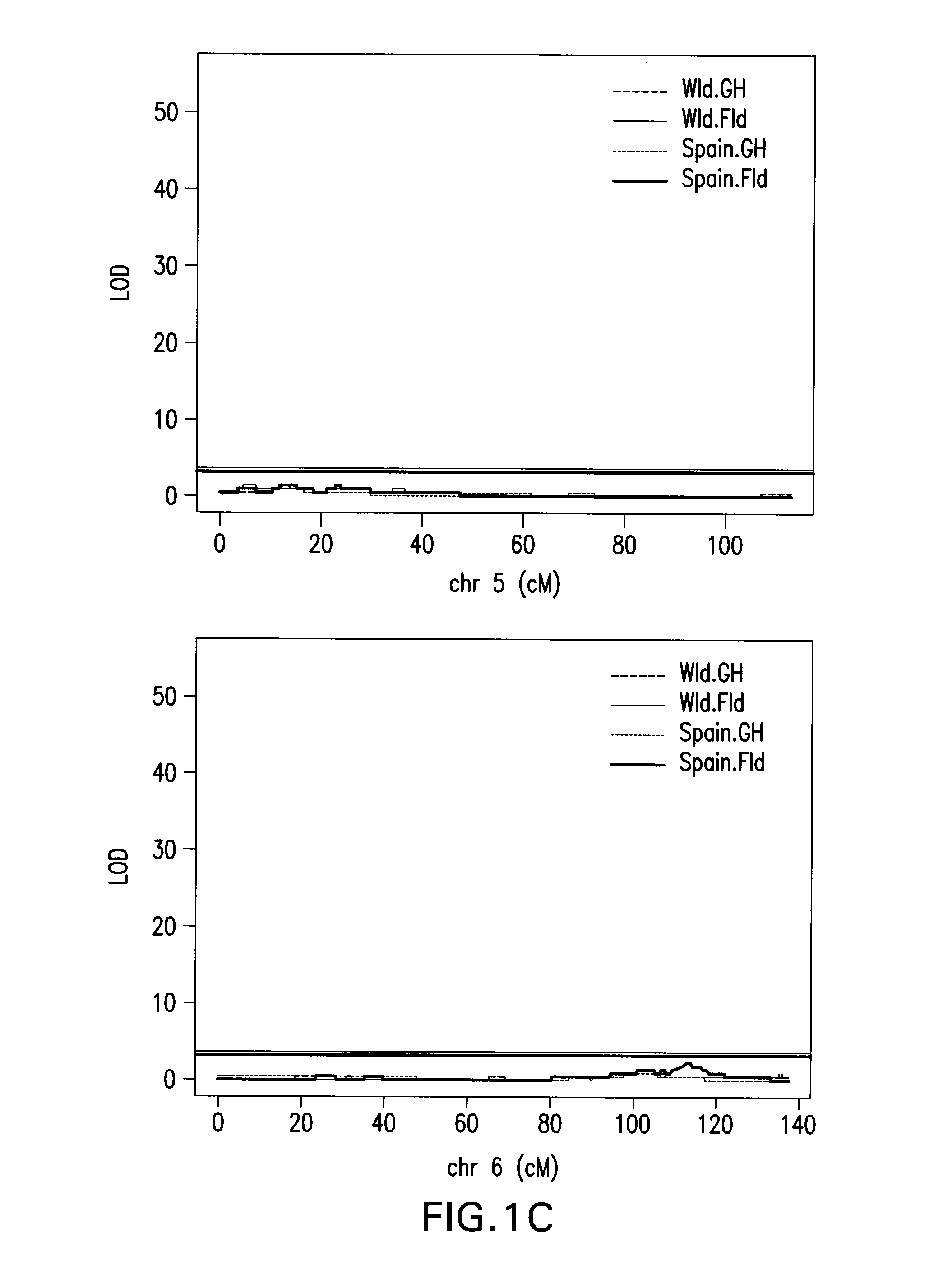Methods and compositions for producing capsicum plants with powdery mildew resistance
- Summary
- Abstract
- Description
- Claims
- Application Information
AI Technical Summary
Benefits of technology
Problems solved by technology
Method used
Image
Examples
example 1
Identification of Resistance to Pepper Powdery Mildew Caused by Leveillula taurica
[0178]To identify germplasm exhibiting resistance to Powdery Mildew caused by the fungus Leveillula taurica, a screen was undertaken with germplasm under disease pressure conditions. A line derived from PBC167 was identified in this screen as a source of resistance to Leveillula taurica. PBC167 is available from the United States Department of Agriculture (USDA) germplasm collection under PI640507. In order to develop tools with which to track this PBC167-derived Leveillula taurica resistance, an association mapping analysis was undertaken.
example 2
Development of a Mapping Population
[0179]A population was developed to create linkage and QTL maps. The pepper line PBC167 displays resistance to Leveillula taurica. Pepper line SBY 99-1179 is susceptible to Powdery Mildew caused by the fungus Leveillula taurica. In SBY 99-1179, introgression of PBC167-derived sequence effects the resistance response. Plants derived from crosses between these pepper lines with distinct levels of Leveillula taurica resistance were obtained, and certain resulting lines were genotyped and phenotyped for association mapping analysis.
example 3
Identification of Leveillula taurica Resistance Mapping Population Genotypes
[0180]The BC1 generation (n=87) of the mapping population from Example 2 was genotyped at a selection of SNP markers collectively spanning each chromosome in the plant genome.
PUM
| Property | Measurement | Unit |
|---|---|---|
| Fraction | aaaaa | aaaaa |
| Electrical resistance | aaaaa | aaaaa |
Abstract
Description
Claims
Application Information
 Login to View More
Login to View More - R&D
- Intellectual Property
- Life Sciences
- Materials
- Tech Scout
- Unparalleled Data Quality
- Higher Quality Content
- 60% Fewer Hallucinations
Browse by: Latest US Patents, China's latest patents, Technical Efficacy Thesaurus, Application Domain, Technology Topic, Popular Technical Reports.
© 2025 PatSnap. All rights reserved.Legal|Privacy policy|Modern Slavery Act Transparency Statement|Sitemap|About US| Contact US: help@patsnap.com



